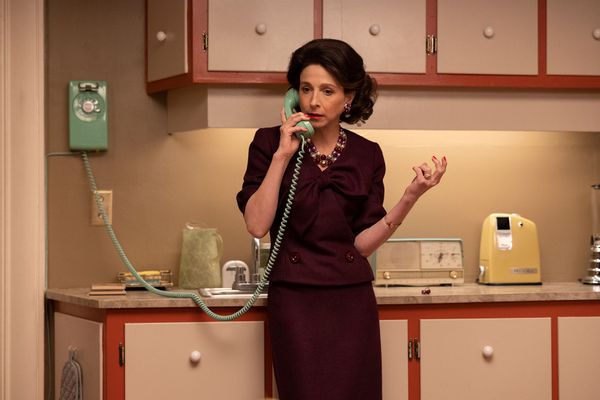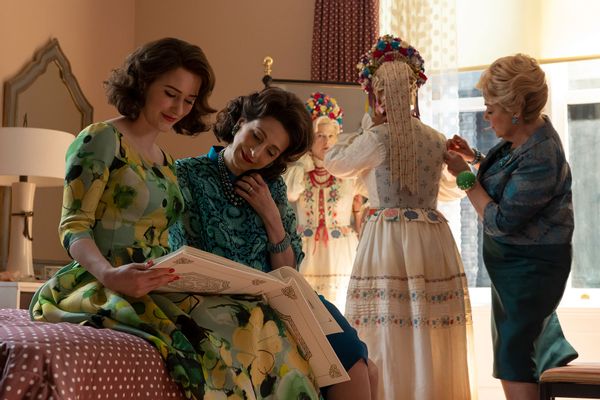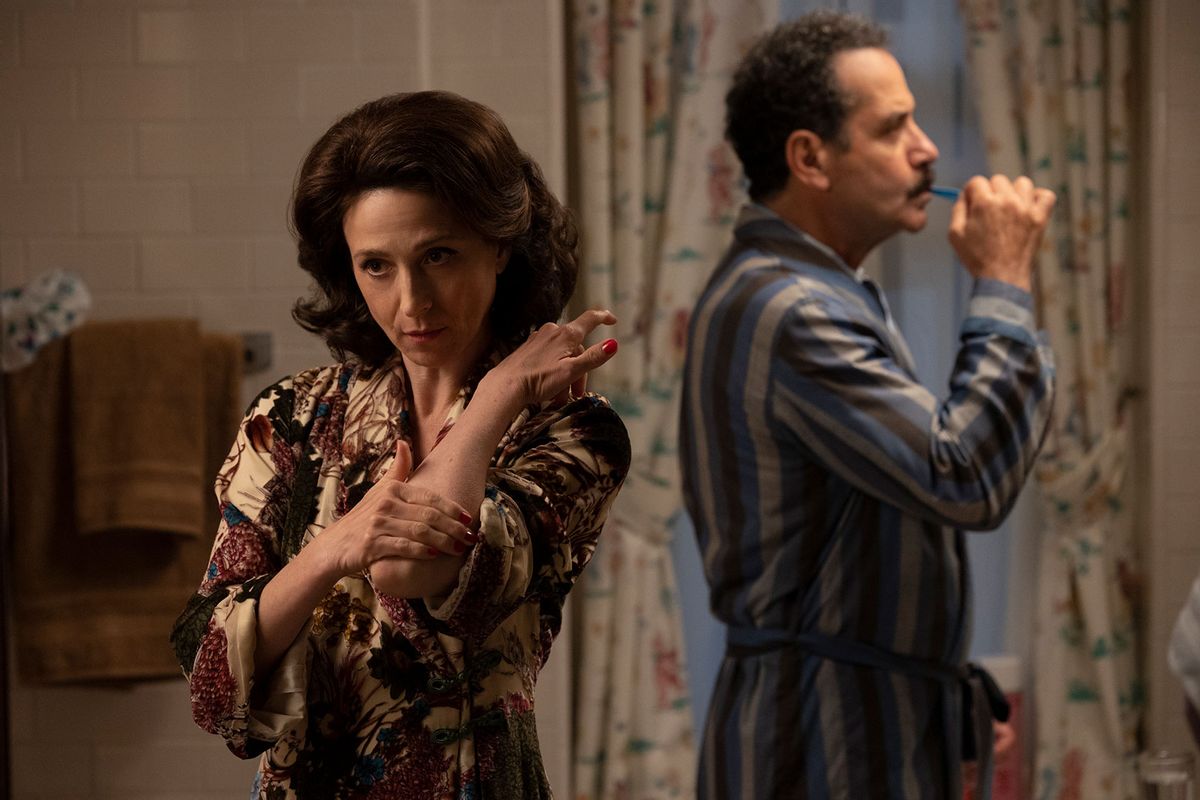The ethereal piano. The sweeping, memorable melody which feels both timeless and bittersweet. We could be in a Lana Del Rey song. But we're not. We're listening to a track by her father, pianist and composer Robert Grant (Del Rey's birth name is Elizabeth Woolridge Grant). The song, from his upcoming album "Lost at Sea," due out June 9, is music only, but one could easily imagine Del Rey's nostalgic vocals drifting over the keys (and they will, on several tracks). "The talent really runs in the family," reads one comment on a YouTube video of another song.
It's almost like … it's really hard to break into the arts and having a famous, wealthy and industry-established family helps.
Grant senior has become the latest to claim nepo parent fame (something he jokes openly about to the point of merchandise). Late last year, prompted by a New York Magazine cover story, the phrase "nepo baby" entered the cultural bloodstream. Referring to the adult child of famous parents, helped along by their family's showbiz connections, associations and wealth, the internet was suddenly full of examples of celebrities who had ridden that nepotism wave. Gracie Abrams? J.J. Abrams' daughter. Dakota Johnson? The child of Melanie Griffith and Don Johnson. Timothée Chalamet? His mother is Broadway star Nicole Flender, father is filmmaker Rodman Flender and grandfather was screenwriter Harold Flender. It's almost like . . . it's really hard to break into the arts and having a famous, wealthy and industry-established family helps.
The nepo parent trend flips the idea. The kid is the one who has made it. And now their older, often retired parent or parents are coming along. And as with Grant, a white-haired former real estate broker and CEO who now is a deep sea fisherman, the trend is looked upon lovingly. It's sweet that the album cover of "Lost at Sea" recalls Del Rey's 2019 "Norman F****ing Rockwell!" with a figure standing on a boat. On "Late Night with Seth Myers," actor Ike Barinholtz joked affectionately about his nepo dad, Alan Barinholtz, a former lawyer and latent aspiring actor, "He's a new ingenue in Los Angeles. And his name is my dad."
But when nepo parents come to "The Marvelous Mrs. Maisel," they come with a whole host of other issues involving pressure and expectation. Even though the roles are reversed, it's something else for Midge (Rachel Brosnahan) to handle, to manage both the emotions and career of her mother.
In its fifth and final season on Prime Video, "Maisel," has treated us to a series of flash-forwards through time, designed to let us know where the characters end up, many years later. "Maisel" is no "Quantum Leap" and these time jumps are not always satisfying or sensible in the context of the long-established characters. Joel (Michael Zegen) goes to jail, for example, largely to protect his ex-wife Midge. Alex Borstein's Susie becomes a pothead, for some reason. And Midge's mother Rose (Marin Hinkle) is a matchmaker, still, many years on.
 Marin Hinkle (Rose Weissman) in "The Marvelous Mrs. Maisel" (Prime Video)Her rise to matchmaking, as detailed in multiple seasons, has been a bit rocky. She was threatened by the mafia of established matchmakers (including a lovely turn by the wonderful Kelly Bishop). They threatened her husband Abe too, and burned down a beloved tea room in retribution. But Rose is good at finding love for clients — and managing their parents — and she persists.
Marin Hinkle (Rose Weissman) in "The Marvelous Mrs. Maisel" (Prime Video)Her rise to matchmaking, as detailed in multiple seasons, has been a bit rocky. She was threatened by the mafia of established matchmakers (including a lovely turn by the wonderful Kelly Bishop). They threatened her husband Abe too, and burned down a beloved tea room in retribution. But Rose is good at finding love for clients — and managing their parents — and she persists.
In the future "Maisel" shows us, something has gone wrong. Or at least, gotten expensive. It's 1973, and Rose, in a Cher-type gauzy Mumu ensemble and flowers in her hair bigger than her head, is trying to star in a commercial for her matchmaking business. She's going regional and getting TV ads, baby. But it's not easy or natural for her. Midge assures her that the crew's complaining is "completely normal." Midge does a lot of reassuring.
 Rachel Brosnahan (Miriam 'Midge' Maisel), Marin Hinkle (Rose Weissman) and Caroline Aaron (Shirley Maisel) in "The Marvelous Mrs. Maisel" (Prime Video)
Rachel Brosnahan (Miriam 'Midge' Maisel), Marin Hinkle (Rose Weissman) and Caroline Aaron (Shirley Maisel) in "The Marvelous Mrs. Maisel" (Prime Video)
Although it's not the child capitalizing on the parents' success, it is the child trying desperately to keep their parent happy.
On many levels, the nepo parent phenomenon makes sense. Artistic ability is sometimes inherited, often modeled and when an older parent starts doing the thing that their child loves, it's the ultimate taking an interest in their children's lives. Barinholtz describes the nepo parent as "a good thing . . . Everyone likes a nepo dad." We love a late bloomer, like Annette Badland of "Ted Lasso" or even Jennifer Coolidge.
With "Maisel," the nepotism is more adjacent than, for example, Catherine Scorsese becoming an actor after being cast by her son Martin Scorsese. But Midge is still using her connections to give her mother access, possibly (as the flashforward to the '70s shows us) after Rose has stopped being really good or completely invested in what she does. "You wanted this, remember," Midge tells her mother. And although it's not the child capitalizing on the parents' success, it is the child trying desperately to keep their parent happy. It's still pressure, as Midge stands behind the camera the whole time so Rose can look and say her lines to her, which seems like something Mama Rose might do.
Want a daily wrap-up of all the news and commentary Salon has to offer? Subscribe to our morning newsletter, Crash Course.
As the departure of housekeeper, cook, nanny and all-around apartment manager Zelda (Matilda Szydagis) proves, Rose has never been great about being grown-up. She doesn't understand what a linen closet is or how to turn on a vacuum (in her defense, Midge and Tony Shalhoub's Abe don't either). Rose's best season was when she went to Paris, leaving behind her husband with his learned helplessness and grandchildren in order to find herself, to latently be actualized. And it feels like she never really recovered from being pulled away from there, and the satisfying, simple life she had carved out for herself. In the future, she looks like a caricature of herself in the matchmaking commercial, propped up by her famous daughter, and that's a sad ending for such a complex and once independent character.



Shares